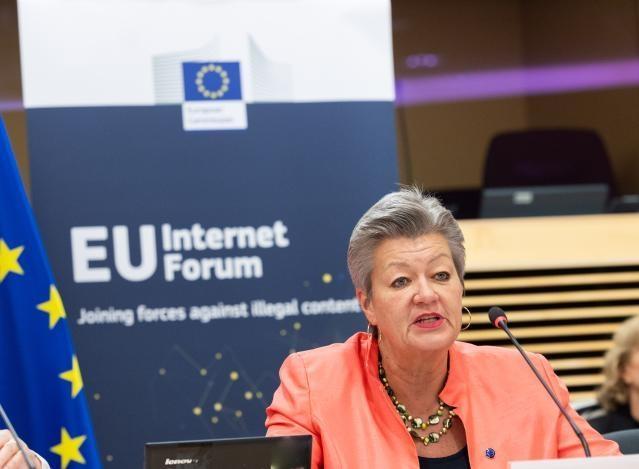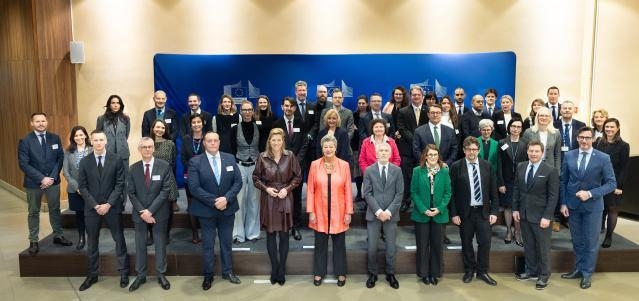
On 29 February, Commissioner Johansson hosted the 9th annual EU Internet Forum Ministerial Meeting in Brussels. The Forum addressed challenges posed by Generative Artificial Intelligence in combatting violent extremist and terrorist content, as well as child sexual abuse online.
During the forum, participants highlighted the need for a multi-stakeholder approach, technical solutions to detect and label AI-generated content, increased cooperation between industry and law enforcement to protect children online, and enhanced digital literacy programmes for users. To further progress collaboration in this area, it was agreed to have a dedicated work strand on the risks and opportunities of generative AI in the EU Internet Forum (EUIF).
Generative AI initially drew attention in 2018, with the first widespread circulation of deepfakes, and entered wider public awareness in 2022, with the emergence of large language models (LLMs) and text-to-image generators. This technology has raised concerns due to its potential for misuse by malicious actors. In particular, the misuse of generative AI by terrorists, violent extremists, and child sexual abuse offenders is a growing concern.
Terrorist groups have begun exploiting AI technologies to advance their ideological narratives, produce propaganda automatically and at a large scale, and spread disinformation. Similarly, generative AI has been used to create highly realistic deepfake content, including sexual abuse images involving real children, posing significant challenges for law enforcement and victim identification.
Strong EU rules against the dissemination of terrorist, extremist,
and abusive content online

New EU rules, such as the Terrorist Content Online Regulation, the Digital Services Act (DSA), and the AI Act, are stepping up the fight against violent extremist and terrorist content online, while negotiations on a proposal for a Regulation laying down rules to prevent and combat child sexual abuse continue, and the Commission is set on ending this pervasive threat.
Moreover, the Regulation to address the dissemination of terrorist content online requires online platforms to take terrorist content down within one hour after it is identified online in the EU. Since its application in June 2022, approximately 350 removal orders have been issued. This helps counter the spread of extremist ideologies online and prevent radicalisation, while safeguarding fundamental rights.
Looking ahead, the European Commission is committed to support EU countries and online platforms in fully implementing the Regulation. This commitment includes organising technical workshops, providing necessary assistance to ensure compliance with legal obligations, and harnessing intelligence at high-level expert groups like the EU Internet Forum.
Details
- Publication date
- 29 February 2024
- Author
- Directorate-General for Migration and Home Affairs
